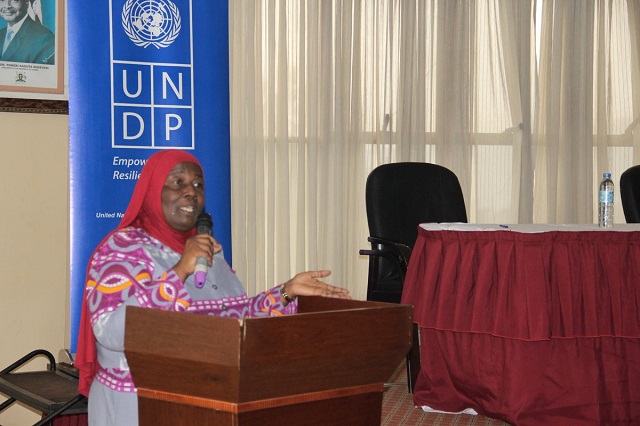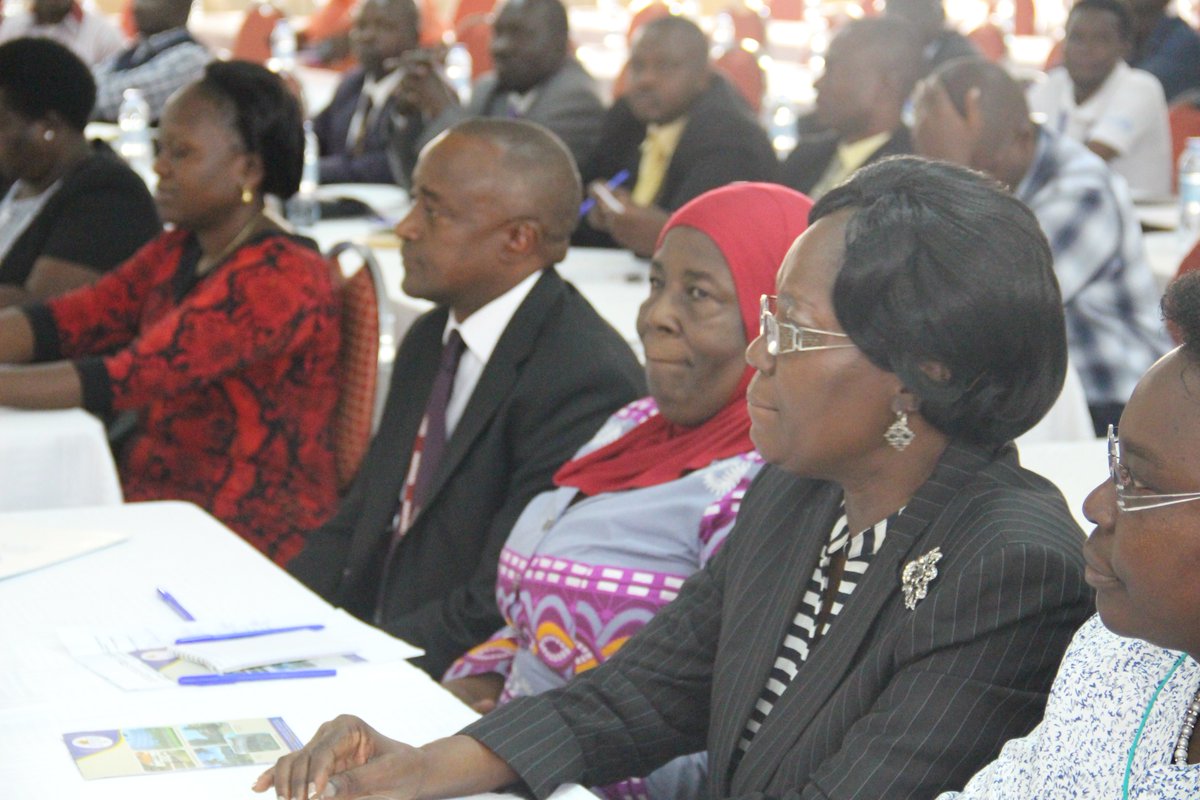
Members of Parliament (MPs) have shown eagerness to adopt the Songhai Model in Uganda’s programmes aimed at fighting unemployment, enhancing labour productivity and food security.
“It is very important Members of Parliament experience the Songhai Model. I am saying that because I am a fan of the Songhai model,” Uganda Parliament Speaker Rebecca Kadaga said at an MPs workshop organized by the Ministry of Gender, Labour and Social Development in Kampala.
” It has taken long to come here but I am happy now that it is in Uganda. It will create employment. You cannot believe that every piece of grass produces something…. Even this water hyacinth that we think is bad,” added Kadaga
The Songhai Model is an integrated system of development that seeks to reduce poverty, unemployment and food insecurity by strengthening the technical and organizational capacities of communities to produce efficiently and sustain-ably.
Prof. Rev.Fr Godfrey Nzamujo, the founder of the Benin-based Songhai Center and Model, made a presentation to the MPs at a one-day workshop at Imperial Royale Hotel.
The model will help in building the entrepreneurial capacity of communities in Uganda and could be key in helping implement two critical programmes aimed at green and decent employment creation, labour productivity enhancement, poverty reduction and environmental sustainability.
The two programmes, the Green Jobs and Fair Labour Market Programme, and, the Inclusive Green Growth for Poverty Reduction Programme (IGGPR) will be implemented 2016 to 2026. The programmes are supported by the United Nations Development Programme (UNDP), Ministry of Finance and Ministry of Water and Environment and the International Labour Organisation, who are advising on a National Apprenticeship Framework.
UNDP is honoured 2present its Inclusive Green Growth Programme which was developed in partnership with Govt & other partners-Mr.Ole-Kuyan pic.twitter.com/clOG7B2PJu
— UNDP Uganda (@UNDPUganda) December 8, 2016
‘Every sector should be linked to another to create wholesome devt-Father Godfrey Nzamujo, founder of the #SonghaiModel presenting to MPs. pic.twitter.com/0GZgZOkO9o
— UNDP Uganda (@UNDPUganda) December 8, 2016
@UNDPUganda Inclusive Green Growth prog’s objective is to s’port govt’s efforts in natural resource mgt, livelihoods & job creation-@WKwamya pic.twitter.com/CT7YSaK6rA
— UNDP Uganda (@UNDPUganda) December 8, 2016
Gender, Labour and Social Development Minister Janat B. Mukwaya said she was confident up to 500,000 unemployed and employed persons, educated or not, would have been skilled and re-skilled over the programme period.
“We need to do things differently to ensure all year round production in agriculture and employment for our youth,” Mukwaya said, explaining why they were keen to adopt the Songhai model, and other environmental-friendly ventures.
She said at the end of the programmes, over 500,000 Jua-Kalis would have been supported with green technology, training and certification and up to 200,000 workers will be able to access decent jobs abroad through three transit centres for Ugandan migrant workers in UAE, Saudi Arabia and Qatar.

Green Jobs and Fair Labour Market Programme
It is a Government of Uganda led programme that will be implemented from 2017 to 2026.
Officials told the MPs that the programme seeks to generate green employment opportunities for educated and uneducated. The programme further seeks to develop sustainable environmental and social safeguard solutions at workplaces in line with National Development Plan II and United Nations Sustainable Development Goals.
According to officials, the programme will be implemented under a six pillar arrangement during its nine year duration. It will include
- Promotion of Green Technologies in the Informal Sector (Jua-kalis) Businesses
- Building Alliance for Quality Apprenticeship in Green Jobs
- Establishment of 10 Industrial Business Shelters (Common-user Facilities) with Workplace Training Facility (Centres of Excellence) for Decent Work
- Establishment of a Revolving Credit Fund to facilitate Decent and / or Green External Employment
- Strengthening Social Safeguards and Green Employment Intensive Works for Youth and Women
- Establishment of a Grant to support Local Governments and KCCA in Green Jobs Creation and Productivity Enhancement.
Inclusive Green Growth for Poverty Reduction Programme
It is a UNDP funded Programme. According to officials, the Programme aims at providing technical, technological, operational and financial support to the relevant Ministries, Departments and Agencies (MDAs) and non-state institutions so that:
- By 2017 policies and legal/regulatory frameworks are strengthened and linked for Natural Resource Management, livelihood and job creation;
- By 2018 Natural Resource Management policies and legal frameworks are operationalized in inclusive and adequately coordinated manner;
- Byy 2019 the public is empowered to engage in sustainable Natural Resource Management; and
- By2020 cost-effective alternative energy solutions for domestic needs are scaled-up.
****
editor@independent.co.ug
 The Independent Uganda: You get the Truth we Pay the Price
The Independent Uganda: You get the Truth we Pay the Price



Do these programmes support local farm projects to make expansions? The project is not registered but employs and can employ more people in the rural areas.